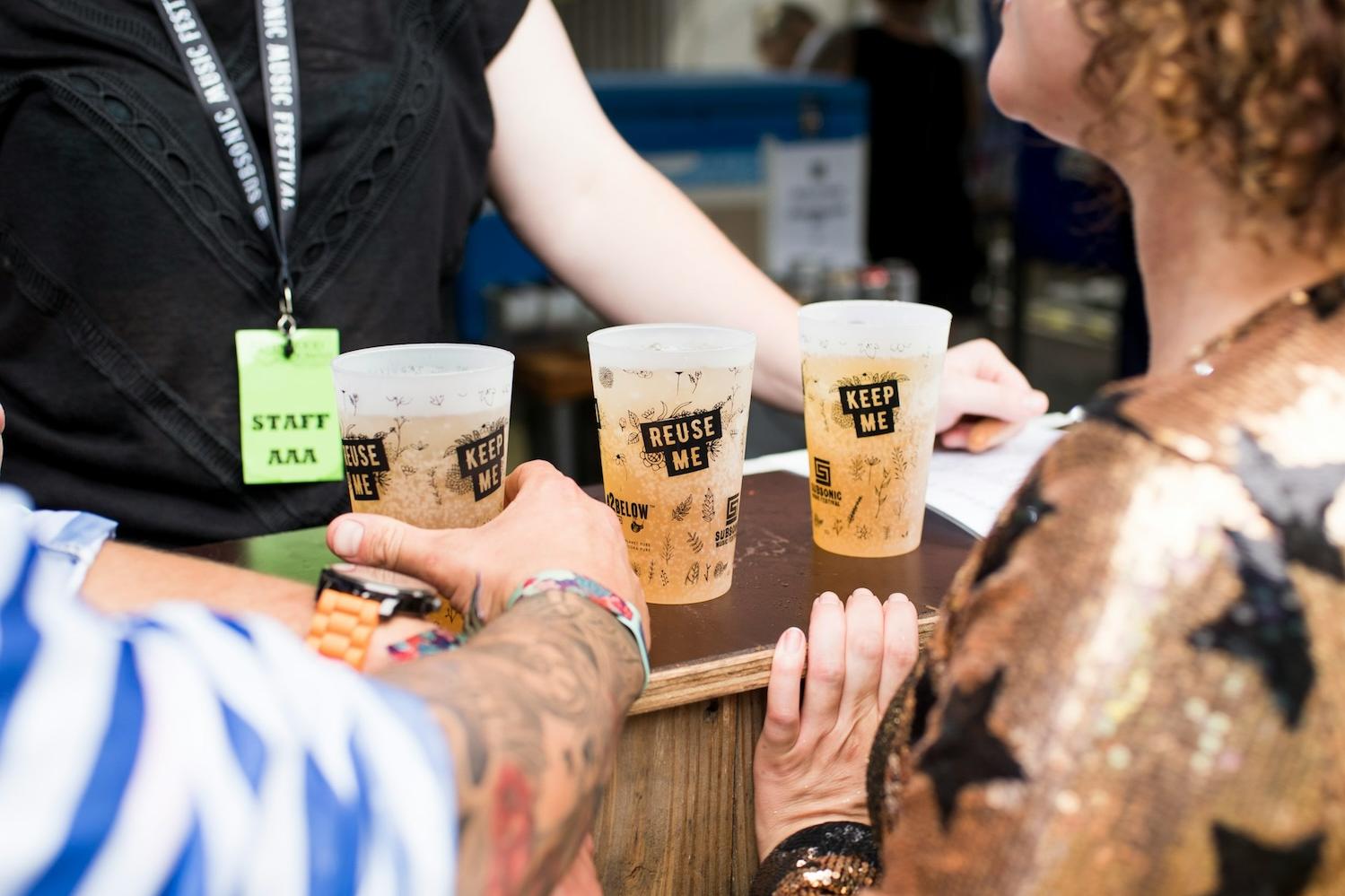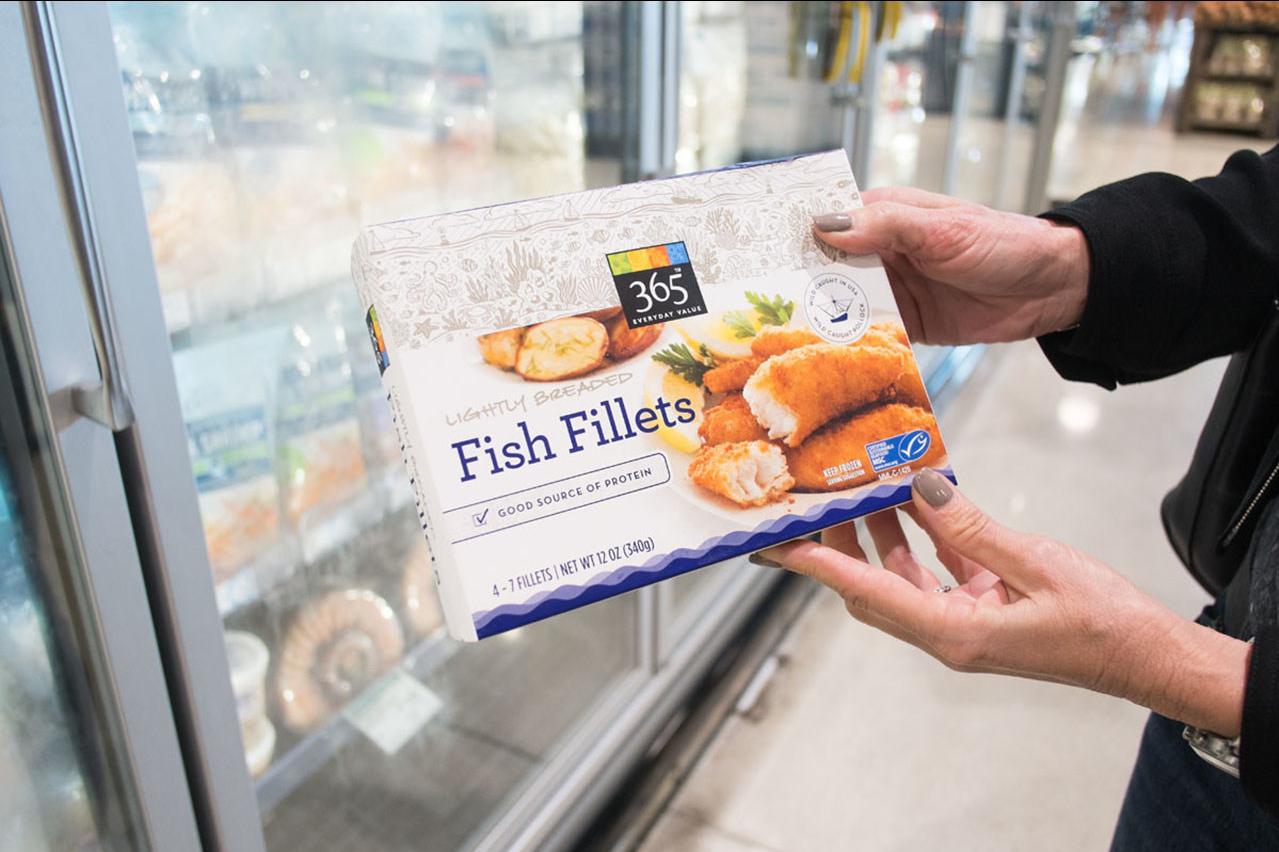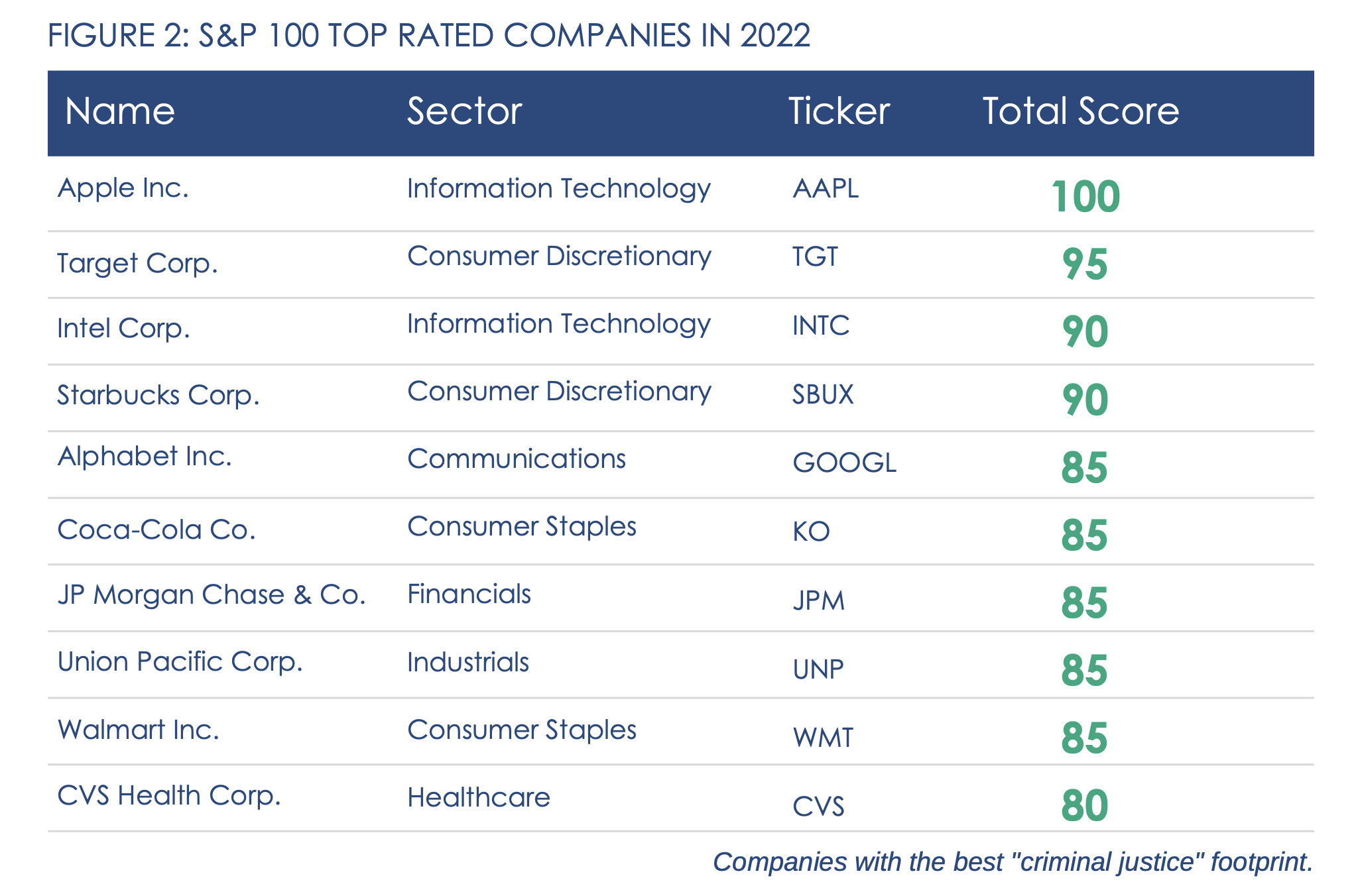
Newscaster Borja Voces, who will vote for the first time in the 2024 U.S. election, strikes a pose at the Vota Conmigo voter registration event in Times Square. With over half the global population set to vote in national elections this year, stories like these are striking a chord with readers. (Image courtesy of TelevisaUnivision)
As we pass the midway point of the year, we're taking a look back at some of the stories our readers clicked most from our weekly Brands Taking Stands newsletter, which covers the latest in corporate and consumer activism.
Considering the U.S. and half of the global population will vote in national elections in 2024, stories about preserving voting rights and election integrity are among the most popular, but readers are also eyeing other hot sustainability topics like gun safety, plastic waste and sustainable consumption. Read on to catch up on the coverage you may have missed, and subscribe to Brands Taking Stands for more stories like these directly in your inbox.
Taking a Stand Against Gun Violence Pays Off For Dick’s Sporting Goods
Dick’s Sporting Goods faced criticism and calls for a boycott from gun ownership activists when it first began scaling back the sale of guns and ammunition in 2012. A dozen years later, the criticism continues.
The National Center for Public Policy Research, a conservative think tank, targeted the company at its shareholder meeting last month with allegations that it harmed financial returns to satisfy executives' political beliefs about firearms.
The only problem is: Dick's sales have never been stronger. Last year's holiday shopping season delivered the biggest sales quarter in the company's history, and it's branching out into new offerings that range from same-day delivery to experiential stores complete with batting cages and practice fields. Meanwhile it continues to respond to public concerns about gun violence.
New Business-Led Pledge Calls on U.S. Political Candidates to Support Election Integrity
We published this story last week and it's already among our most popular for all of 2024 — a clear sign the upcoming U.S. election is at the top of our readers' minds. Launched at the end of June, the Federal Candidate Pledge to Respect Elections calls on candidates for president and other federal offices to uphold the basic democratic guarantee of free and fair elections.
Launched by the Leadership Now Project, a bipartisan nonprofit that advocates for American democracy, the pledge cites six specific commitments for candidates — including respect for individual voting rights, ensuring the safety of election officials and, above all, supporting the peaceful transfer of power.
More than 125 business leaders co-signed by the time of the announcement on June 26, including LinkedIn Co-Founder Reid Hoffman. "As we prepare for the general election, it is critical that candidates reinforce confidence in our democratic processes, as election instability threatens business operations and economic stability," Hoffman said in a statement. Other signatories include senior executives from across industries and both sides of the political aisle.

This Fund Aims to Scale Packaging Reuse and Refill Systems Globally
At least 14 million tons of plastic are washed into the world's oceans every year, equivalent to more than 280 billion beverage bottles. These plastics break down into smaller and smaller pieces when exposed to the sun, and the resulting microplastics have been found from the top of Mount Everest to the ocean floor — not to mention in human blood, and more recently within testicles and clogged arteries.
Given the scale of the challenge, it's no surprise that readers around the world have a keen interest in how we can possibly solve it. The good news is that we already know the steps to take — we just need to put them into action. The U.N. Environment Program ran scenarios for halving global plastic waste while reducing plastic litter in oceans and the environment by 80 percent, and it found most of the plastic reduction needed to reach that target could be achieved by reuse, refill and new delivery models.
Launched in February by the plastic action group Repurpose Global, the Reuse Outcomes Fund aims to help promising startups in the U.S., Canada and India bring their reuse and refill ideas to market. The fund leverages lessons the nonprofit learned from scaling waste management infrastructure across the Global South and focuses on models that can be scaled and replicated globally in the coming years.
Nonpartisan Ways Brands Can Support Free and Fair Elections in the U.S.
Standing up for the basic tenets of democracy — such as the right to vote without interference and have that vote be counted — is not partisan. And business leaders don't need to back a candidate or make a political statement in order to get involved.
We spoke with democracy advocates about non-partisan ways U.S. businesses can support voting rights and election integrity in 2024 — from giving employees paid time off to vote and volunteer as poll workers, to directing stakeholders toward trusted sources of essential election information like voter registration deadlines.
Sustainable Brands Are Worth $44 Billion to U.S. Consumers, New Study Finds
We often hear that consumers are looking for sustainable products and brands, and that many are even willing to pay more for them. But it’s often difficult for brand leaders to pin down just how much of an impact sustainability really has on consumer purchasing, making it harder to tie investments in sustainability to the bottom line.
Earlier this year, TriplePundit and our parent company 3BL teamed up with the research technology firm Glow and panel partner Cint to put a dollar figure on consumer affinity for sustainable brands for the first time. The number was big, and it clearly caught our readers' attention.
In 2023 alone, we found a $44 billion impact across 12 U.S. industries as consumers switched from one brand to another for sustainability reasons. About a quarter of U.S. consumers stopped doing business with a brand last year because of its social or environmental behavior. "In this study we show, as has been shown previously, that this issue is almost universally important to consumers," Mike Johnston, data product leader at Glow, said during a webcast interview hosted by TriplePundit. "We also show there's an expectation for businesses to act on these issues."
The 2024 Consumer Insights & Sustainability Benchmark, released by TriplePundit and 3BL last month in partnership with Glow, takes a closer look at what's driving this billion-dollar shift, how consumers define companies as sustainable, and what they expect from the business world this year.
Inside TelevisaUnivision's Media Blitz to Drive Voter Registration
Civic engagement groups predict about 17.5 million Hispanic and Latino voters will cast a ballot in the U.S. elections in November, a 6.5 percent increase over 2020. With the Vota Conmigo voter education campaign, the Mexican-American media company TelevisaUnivision and partners across the United States aim to increase Latino participation even further to 20 million at the polls.
"This is about democracy," said Teri Arvesu, SVP of social impact and sustainability at TelevisaUnivision. "It doesn't matter who you vote for, I don't care. It's about showing up. And that means something fundamentally much deeper for our community when so many of our families came here from countries where they would not have been able to exercise that right to vote or to participate in a democratic society."
Spanish for "Vote With Me," the Vota Conmigo campaign focuses on providing essential election information to Hispanic and Latino voters. The nonpartisan effort reached 770 million media impressions and registered 1.3 million new voters ahead of the 2020 election. The 2024 campaign kicked off in May with an activation in New York City's Times Square, and it will continue in person, on the airwaves and online through Election Day.
Support for the Anti-ESG Movement Is Dwindling, But Uncertainty Looms Ahead of Election Day
Pushback against the use of environmental, social and governance (ESG) factors in business gathered momentum in the U.S. back in 2021 when legislators in approximately two dozen Republican-led states passed anti-ESG laws.
Some of these laws restrict state agencies or public pension funds from using ESG factors in their investments. Others ban state and local entities from doing business with specific financial companies that legislators deemed to be unfairly disinvesting from the oil and gas sector because of ESG screens.
Signs indicate the news cycle — and the general public — appear to be moving on from the anti-ESG narrative, but upcoming elections in the U.S. and around the world still have some business leaders nervous about what's ahead.

Third-Party Verification Labels Can Guide Sustainable Shopping, If Consumers Know About Them
"People are increasingly conscious of their purchasing habits and want to make sure they are shopping for products that match their values," said Nicole Condon, U.S. director at the Marine Stewardship Council, a nonprofit certifier of sustainable seafood. "We’re seeing that consumers are growing more aware of how their purchasing habits impact the environment and, when given the information to make a more sustainable choice, they’re doing just that."
Though a growing segment of consumers are looking to shop more consciously, the ever-increasing volume of sustainability claims creates confusion and makes it harder to differentiate verifiable product attributes from marketing fluff. Third-party verification labels can help point consumers in the right direction, but only if people know what these labels mean and why they should look for them on the products they buy.
We spoke with Condon about how product certifiers, brands and retailers can build awareness of green labels in a Brands Taking Stands story that proved a hit with readers this spring.

Do Your Investments Support the U.S. Prison System?
When most people think about companies profiting from the U.S. criminal justice system, private prisons are likely the first thing that comes to mind, but that's only the tip of the iceberg. More than 1.2 million people are incarcerated across the United States. The vast majority of them — over 90 percent — are housed in public prisons run by states and the federal government, at an average annual cost of more than $40,000 per person.
"It costs as much to send someone to prison as it does to send them to college," said Tanay Tatum-Edwards, CEO and founder of FreeCap Financial. "And that money is all going somewhere."
Research released by FreeCap Financial in February gave us more insight into exactly where it's going. The data provider's 2023 Criminal Justice Report ranks the largest U.S. companies based on their vending contracts with prisons, use of prison labor and fair chance hiring policies for people with criminal justice histories. It tracks more than $8.6 billion in contracts between state and federal prisons and Russell 3,000 companies from 2019 to 2022.
The research is meant to inform asset managers about how the companies in their portfolios interact with the criminal justice system and ensure their investments align with their clients' values. Launched in May, the FreeCap Financial BITA Decarceration Index translates this research into an investable product, and backtesting indicates it beat the iShares S&P 500 Index for two out of the last three years. While the FreeCap Index is limited to asset managers and researchers at present, a retail fund for everyday investors is expected in 2025.
Don't forget to subscribe to Brands Taking Stands for more coverage like these. Have an idea for a story you'd like to see us cover in a future edition of Brands Taking Stands? Tell us about it here.

Mary has reported on sustainability and social impact for over a decade and now serves as executive editor of TriplePundit. She is also the general manager of TriplePundit's Brand Studio, which has worked with dozens of organizations on sustainability storytelling, and VP of content for TriplePundit's parent company 3BL.













